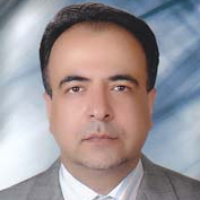The Representation of Freedom in the Press during the Constitutionalist Era in Iran through van Leeuwen’s Model
The Constitutionalist era in Iran brought about a period of significant transformation, where Iranians were exposed to a multitude of new terms and phenomena, resulting in heightened awareness. This newfound awareness laid the groundwork for a shifting of power dynamics and eventually led to structural changes within the country. However, it is important to note that religious, political, and elite figures, shaped by their distinct backgrounds and interests, did not equally reflect these changes. Consequently, varying interpretations of key concepts such as freedom, equality, and law emerged, which were then reflected in the press and media of the time. This research aims to examine the representation of the concept of freedom in the press during a specific historical era, utilizing van Leeuwen's model as a framework. The focus is on analyzing newspapers such as Qanun, Habl al-Matin, Sur-e Esrafil, and Mosavat. The research method employed is content analysis, drawing upon van Leeuwen's theory of representation. The theoretical framework is based on his model, which comprises four key categories: authorization, moral evaluation, rationalization, and mythopoesis. These categories contribute to the discursive construction of legitimization, demonstrating how each element plays a role in legitimizing concepts within representations. Consequently, this research investigates the legitimization of events presented in the press utilizing van Leeuwen's model. Data has been collected from documents and the aforementioned newspapers during the two-year period of the Constitutional Movement, spanning from spring 1285 Sh to summer 1287 Sh.
-
The Impact of Elite Political Culture on the Decision-Making Process of the Nuclear Case During the Reformist (Khatami) and Justice-Oriented (Ahmadinejad) Presidencies
Ehsan Yousefi, *, Keyhan Barzegar
Journal of Social-Political Studies of Iran's Culture and History, Summer 2025 -
The Impact of the Pahlavi Government's Cultural Policies on the Evolution of Fiction Literature,1925-1979
Elham Masouminejad, Mohammad Tohidfom *, Maryam Esmaeilifard, Aliashraf Nazari
Journal of Documentary researches of the Islamic Revolution,


